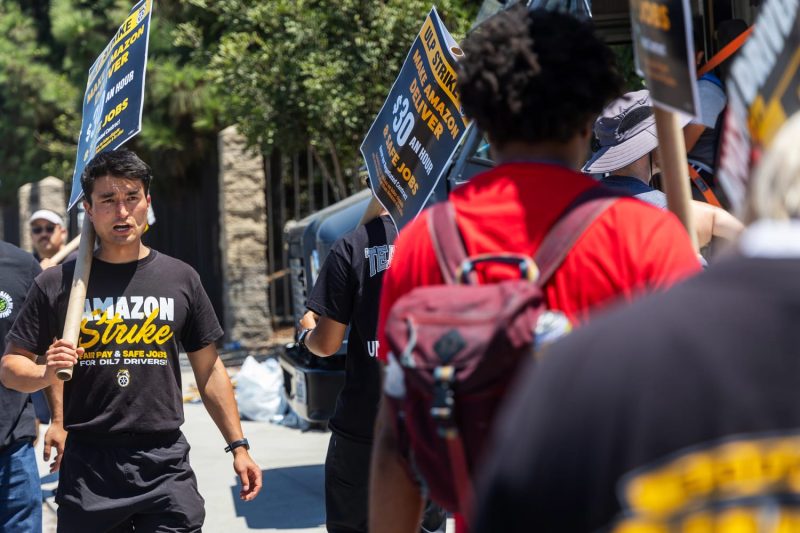Amazon Hikes Wages for Contract Delivery Drivers as Union Pressures Grow
The recent move by Amazon to increase wages for contract delivery drivers comes amid mounting pressure from labor unions and advocacy groups. The e-commerce giant raised the minimum rate for these drivers, who are not directly employed by Amazon but work for contracted delivery service providers. This decision, which affects thousands of drivers across the United States, is seen as a response to the growing calls for fair wages and better working conditions in the gig economy.
Amazon’s decision to boost wages for contract delivery drivers is a significant step toward addressing some of the concerns raised by workers and labor advocates. The company has faced criticism in the past for its labor practices, with accusations of exploitative working conditions and inadequate compensation for gig workers. By increasing the minimum rate for delivery drivers, Amazon is acknowledging the importance of fair wages and seeking to improve the working conditions of those who help power its vast logistics network.
The move to raise wages for contract delivery drivers also comes at a time when labor unions are increasingly vocal about the treatment of gig workers. As the gig economy has expanded rapidly in recent years, concerns about worker rights and protections have escalated. Organizations like the Amazon Labor Union have been pushing for better pay, benefits, and job security for gig workers, including those employed as contract delivery drivers.
In response to mounting pressure, Amazon has taken steps to address some of the issues raised by labor unions and advocacy groups. In addition to increasing wages for contract delivery drivers, the company has also introduced a range of initiatives aimed at improving the working conditions of its workers. These include programs focused on safety, training, and career development, as well as efforts to provide greater transparency and accountability in its labor practices.
While the wage hike for contract delivery drivers is a positive development, some critics argue that more needs to be done to ensure fair treatment and compensation for all workers in the gig economy. In particular, concerns have been raised about the classification of gig workers as independent contractors, which can limit their ability to access benefits like health insurance, paid sick leave, and retirement savings plans. Addressing these broader issues will require a comprehensive approach that involves collaboration between companies, workers, and policymakers.
Overall, Amazon’s decision to increase wages for contract delivery drivers is a step in the right direction toward improving the working conditions and compensation of gig workers. By taking proactive measures to address concerns raised by labor unions and advocacy groups, the company is demonstrating a commitment to supporting and valuing its workforce. However, more work remains to be done to ensure that all workers, regardless of their employment status, are treated fairly and have access to essential benefits and protections.

